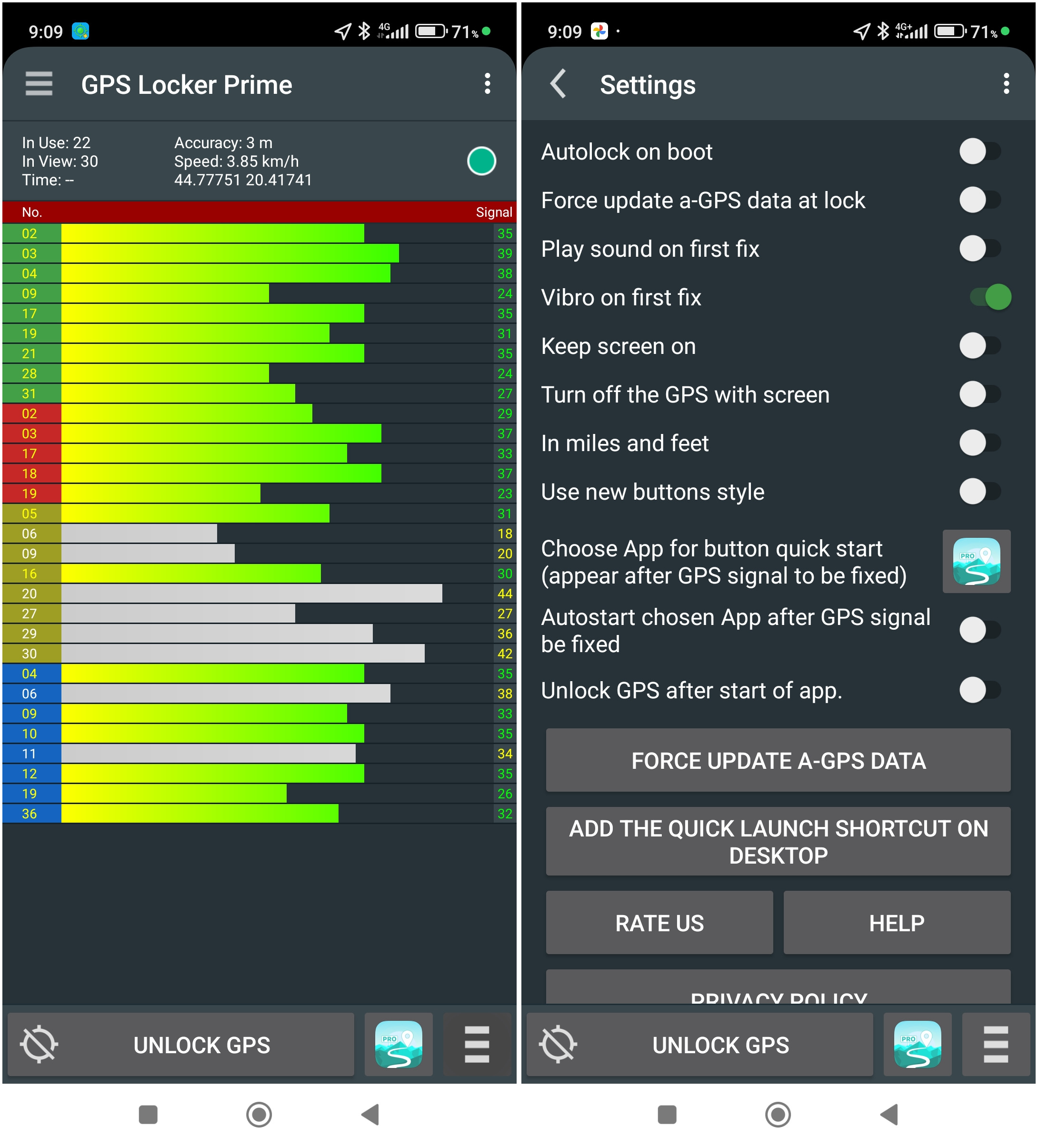GPS Locker is a utility designed to enhance the performance and stability of GPS connections on your Android phone. It is particularly useful in scenarios where maintaining a stable, continuous GPS signal is crucial.
I find it especially useful to:
- prevent losing the GPS connection when switching between GPS-using apps
- enhance the accuracy of the geotagged location in photos I take with my mobile phone
Main Features
Locks GPS Signal
The primary feature of the app is to lock your device's GPS signal, ensuring it doesn't drop when the screen is turned off or when switching between apps. This is especially useful for apps that need continuous GPS tracking, such as navigation, fitness trackers, or any location-based apps. Should be noted that some of the better navigation and GPS recording apps might have the GPS locking mechanism built-in.
Improves GPS Stability
It can prevent your device from losing the GPS signal, especially when switching between apps, moving between areas with poor signal, or using background applications.
Keeps GPS Active
Even if you minimize the app or turn off the screen, "GPS Locker" can keep the GPS working without interruptions, which helps when using navigation and track recording apps.
Reduces GPS Search Time
Sometimes, when you open an app that requires GPS, your phone takes a bit of time to find a GPS fix. GPS Locker can reduce the time it takes to find your location by maintaining an active signal.
Background - Why is the GPS Connection Unstable
The Android Operating System can drop or reduce the accuracy of the GPS connection under certain conditions, which helps conserve battery life. Here are the main situations where this can happen:
App Moves to the Background
If a GPS-using app is sent to the background (for example, you switch to another app or return to the home screen), Android may reduce the frequency or precision of GPS updates, or even turn off GPS temporarily.
However, apps with proper background permissions or services (like navigation apps) can request continued GPS access, though some manufacturers may still restrict it aggressively to save battery.
Screen Turns Off
By default, Android can suspend or reduce GPS activity when the screen turns off. This is especially true for apps that don’t explicitly request location updates while in the background. Some phones and custom ROMs might also have aggressive power-saving modes that further limit GPS activity when the screen is off.
Battery Optimization Settings
Android’s battery optimization features, which help preserve battery life, can also cause GPS connections to be throttled or dropped, particularly for apps that don't have exceptions set in battery optimization settings. Certain manufacturers (like Xiaomi, Huawei) have even more aggressive battery-saving modes that can disrupt GPS tracking.
Low Battery
When your battery is running low, Android might automatically reduce GPS accuracy or frequency to conserve power, potentially causing drops in GPS connection.
Power-Saving Modes
If your phone is in a power-saving mode (either manually activated or automatically triggered by low battery), GPS usage can be restricted or the precision can be downgraded (from GPS to Wi-Fi or cell tower triangulation).
Using the App
All you need to do is start the app. I like to launch it at the beginning of my hikes, ensuring that all the photos I take are accurately geotagged, as the GPS location is already fixed by the GPS Locker app. It also helps my other GPS-using apps quickly access location data when I activate them, eliminating the usual delay in obtaining a GPS fix when an app is brought to the foreground.

Platform, Pricing and Rating
GPS Locker is available on Android for free, but contains adds. In order to get rid of the adds and support the developers you can get an add-free version, called "GPS Locker Prime", for 3 USD.
As of October 2024, the app has been downloaded over a million times and has a 4.8 rating out of 62k reviewers. Quite impressive!

Comments
Powered by FastComments
